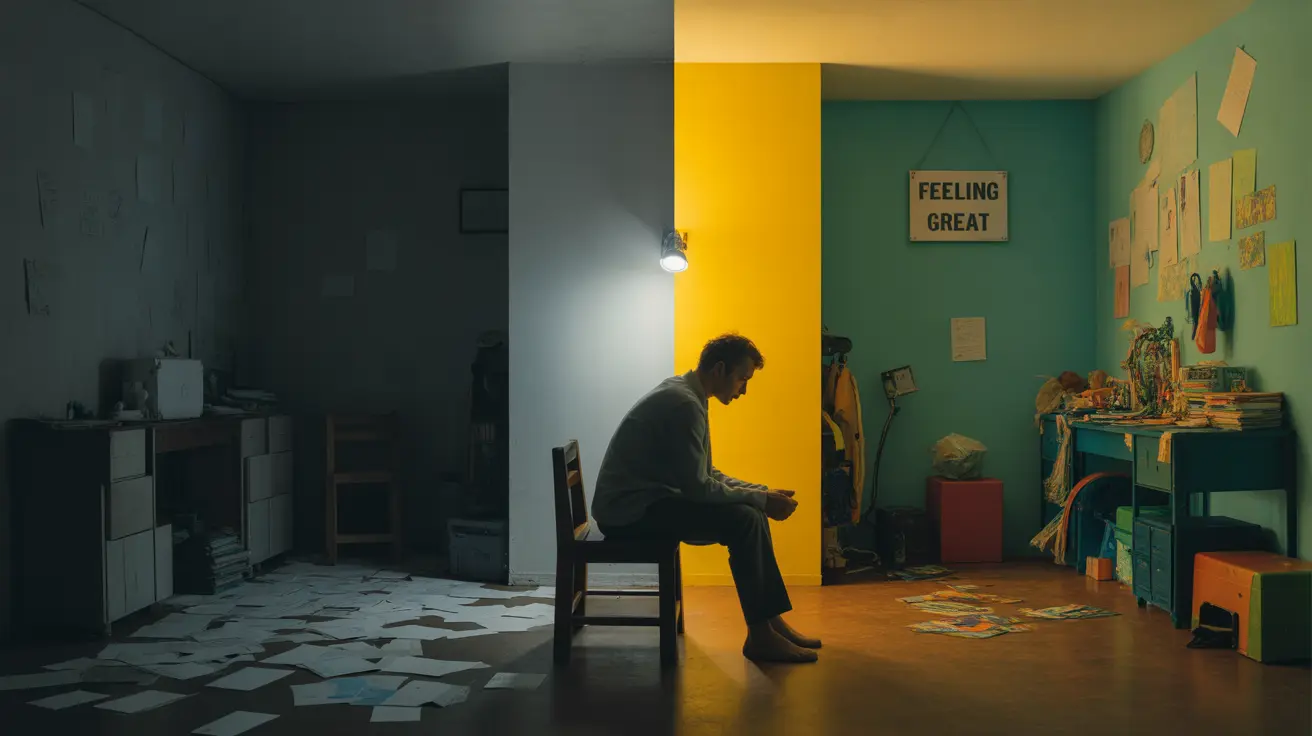Bipolar disorder is a complex mental health condition that requires professional attention and consistent treatment. When left untreated, this disorder can have far-reaching consequences that affect nearly every aspect of a person's life, from their personal relationships to their physical health and overall well-being.
Understanding the potential risks and complications of untreated bipolar disorder is crucial for both individuals living with the condition and their loved ones. This comprehensive guide explores the various impacts of forgoing treatment and highlights the importance of seeking appropriate medical care.
The Progressive Nature of Untreated Bipolar Disorder
When bipolar disorder remains untreated, symptoms typically become more severe and episodes may occur more frequently. The natural progression of the condition can lead to increasingly extreme mood swings, making it harder to maintain stability in daily life.
Research suggests that each episode of mania or depression can potentially cause changes in brain structure and function, making the condition more difficult to treat over time. This phenomenon, known as "kindling," emphasizes the importance of early intervention and consistent treatment.
Impact on Mental Health and Cognitive Function
Untreated bipolar disorder can significantly affect cognitive abilities and overall mental health. Common consequences include:
- Memory problems and difficulty concentrating
- Increased risk of anxiety and panic disorders
- Higher likelihood of developing substance use disorders
- Worsening of psychotic symptoms during episodes
- Decreased ability to make rational decisions
Effects on Personal Relationships and Social Life
The unpredictable nature of untreated bipolar disorder can strain relationships with family, friends, and romantic partners. Mood swings and behavioral changes may lead to:
- Difficulty maintaining stable relationships
- Increased conflict with loved ones
- Social isolation and withdrawal
- Problems with communication and trust
- Challenges in parenting and family dynamics
Physical Health Complications
Many people don't realize that untreated bipolar disorder can have serious physical health consequences. These may include:
- Disrupted sleep patterns and insomnia
- Cardiovascular problems
- Weakened immune system function
- Weight fluctuations and metabolic issues
- Increased risk of chronic health conditions
Impact on Professional Life and Daily Functioning
Untreated bipolar disorder can severely affect a person's ability to maintain steady employment and perform daily tasks. Common challenges include:
- Inconsistent work performance
- Difficulty maintaining employment
- Financial problems due to impulsive spending during manic episodes
- Academic struggles
- Inability to maintain a regular schedule
Treatment Options and Recovery
Effective treatment for bipolar disorder typically involves a combination of approaches:
- Mood-stabilizing medications
- Regular therapy sessions
- Lifestyle modifications
- Support group participation
- Stress management techniques
Frequently Asked Questions
- What are the risks and consequences of untreated bipolar disorder over time?
Untreated bipolar disorder can lead to worsening symptoms, increased episode frequency, cognitive decline, and a higher risk of substance abuse. The condition may become more difficult to treat as time passes, and individuals may experience more severe manic and depressive episodes.
- How does untreated bipolar disorder affect personal relationships and social life?
Untreated bipolar disorder can strain relationships through unpredictable behavior, mood swings, and communication difficulties. It often leads to social isolation, broken relationships, and challenges in maintaining healthy connections with family and friends.
- What are the potential physical health problems linked to untreated bipolar disorder?
Physical health complications can include cardiovascular issues, sleep disorders, metabolic problems, and a weakened immune system. The stress of untreated bipolar disorder can also contribute to various chronic health conditions.
- How can untreated bipolar disorder impact work, school, and daily functioning?
Untreated bipolar disorder can significantly impair professional and academic performance, leading to job loss, poor academic outcomes, and difficulty maintaining daily routines. It may also result in financial problems due to impulsive decisions during manic episodes.
- What treatment options are effective for managing bipolar disorder and improving quality of life?
Effective treatment typically includes a combination of medication (such as mood stabilizers and antipsychotics), regular therapy, lifestyle changes, and support systems. A comprehensive treatment plan, developed with healthcare professionals, can significantly improve symptoms and quality of life.




